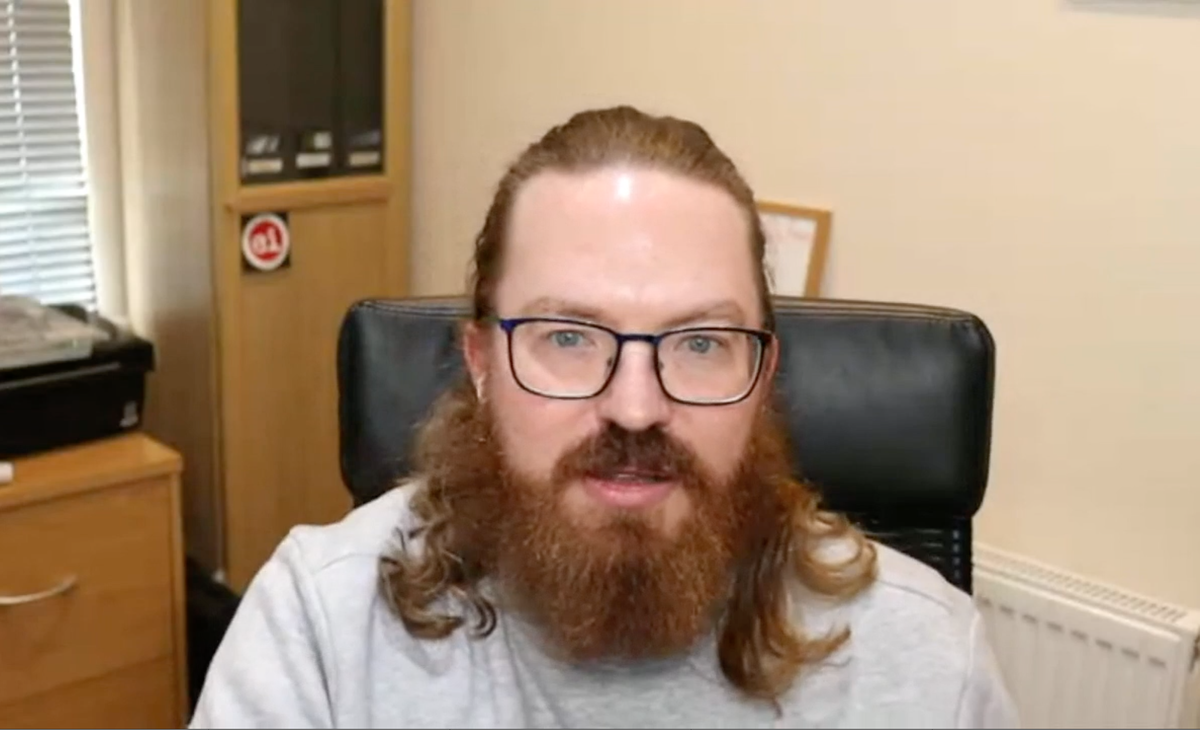Police Raid Against Journalist Asa Winstanley Was Unlawful, UK Court Rules

A British court ruled that a counter-terrorism police raid against London-based journalist Asa Winstanley was unlawful, as the search warrants were not properly obtained.
Asa Winstanley, an associate editor for the Electronic Intifada, was targeted by the authorities in the United Kingdom on October 17, 2024. Police knew they were raiding a journalist’s home, and according to Winstanley, officers even asked him which electronic devices were personal and which were used for reporting and writing.
The police seized several computers, phones, and other devices. As Winstanley recounted, his solicitor Tayab Ali wrote to the police and demanded that they “halt any search” of his devices. In response, on October 19, the police agreed not to access the electronics.
On May 13, the Central Criminal Court’s highest-ranked circuit judge ruled against the police as they sought a “Production Order” that would have forced Winstanley to grant the authorities to provide certain information. Winstanley’s devices were subsequently returned to him.
In a statement from Bindmans, the law firm where Ali is a deputy managing partner, it was noted that the judge, Recorder of London Mark Lucraft KC, expressed being “very troubled by the way in which the search warrant application was drafted, approved and granted where items were to be seized from a journalist.”
Ali declared the ruling a “resounding victory for press freedom and the rule of law. The actions of the police, raiding a journalist’s home under the guise of counter-terrorism, were not only unlawful but a grave threat to the democratic principle that journalists must be able to work without fear of state harassment.”
“This case was not about national security, it was about silencing a journalist who had made comments on the situation in Gaza,” Ali added. “The police acted improperly by applying for warrants at the Magistrates Court where there simply is no power to retain journalistic and privileged material and despite repeated warnings refused to concede they had acted unlawfully.”
Incredibly, Winstanley wrote that the only reason the police gave for “why they should be granted access to the journalistic devices they illegally seized was ‘attribution’ of my Twitter/X account.”
“In other words, they claimed to have needed the devices to make sure it really was my Twitter account! They could have just asked me,” Winstanley declared.
More seriously, Winstanley called on the “police to drop their ongoing investigation into my tweets and to apologise for the unlawful raid on my home and seizure of my devices. They should provide compensation for the harm caused to me and my family, as well as for any detriment to my journalistic contacts and sources.”
Winstanley further described two reports from October 2023 and February 2024 that were compiled by the “Counter Terrorism Internet Referral Unit.” They contained “no less than 80 pages of screenshots and tweets alongside commentary from the police.”
The first report was apparently the result of a public complaint but by whom is unclear. The second report came from a “UK-based counter extremism think tank” that was apparently deeply bothered by Winstanley’s posts so naturally they reported his speech to the police.
After the raid occurred, Winstanley received support from the National Union of Journalists (NUJ) as well as the International Federation of Journalists (IFJ). He is an NUJ member.
In September 2024, Mohamed Elmaazi, who is also based in London, reported for The Dissenter on the increased and alarming application of provisions in the Terrorism Act 2000 and Terrorism Act 2006 to suppress journalism. Writer Tony Greenstein and journalists Richard Medhurst and Sarah Wilkinson were targeted. Wilkinson faced a worse raid, where police ransacked her home.
Greenstein was actually charged with a crime in December. Medhurst and Wilkinson have not been charged with any crimes, yet they both have had to live under a cloud of investigation that greatly undermines their ability to exercise their freedom of expression and do their jobs as journalists or commentators.
The NUJ and IFJ have opposed the continued use of U.K. terrorism law to suppress journalism and writing that opposes Israel’s war on Gaza.
“Confiscating journalistic equipment and retaining these for an extended period of time without adequate explanation is unacceptable, and creates a wider chilling environment for all journalists carrying out their legitimate reporting and investigations,” NUJ general secretary Michelle Stanistreet previously stated.

Comments ()